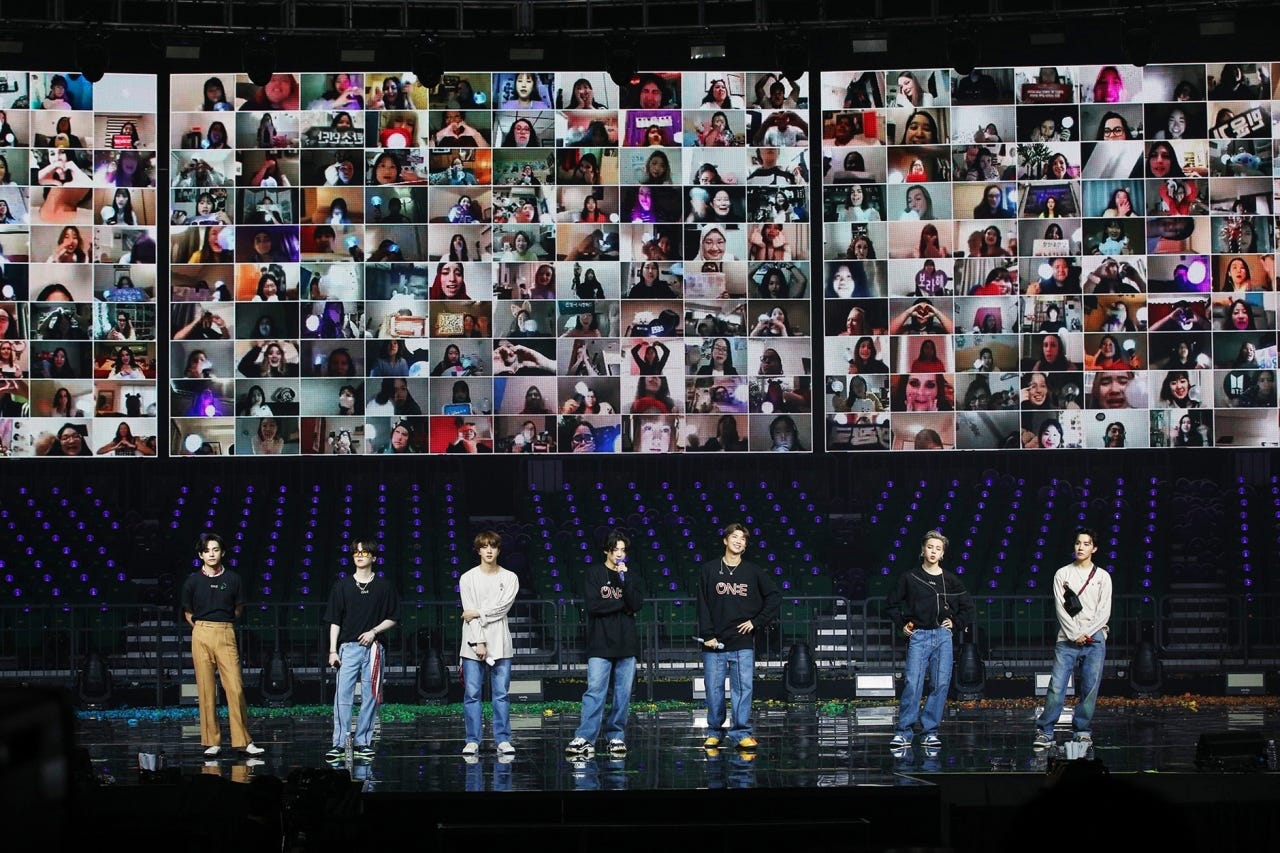Welcome to East West Hurricane! 🌪
We update you on the most essential news from Asia in tech, media, and business—the things you need to know that you probably haven’t heard in Western media.
Follow us on Twitter and Instagram! ⚡️
The BTS Live Virtual Concert That Broke Records
Over the last weekend, K-pop group BTS hosted a two-day virtual concert that was watched by nearly 1 Million people from 191 countries. People could watch the live concert from a variety of different angles and much like the virtual fans of sports leagues like the NBA, BTS fans could have their faces featured on screens at the stadium where the group was performing.

This is the second virtual concert BTS has hosted this year. The first took place in June and was called “Bang Bang Con: The Live.” Technology like augmented reality and virtual reality was used to make the concert even more visually impressive and interactive. Several K-pop groups, like many other musicians, have hosted virtual concerts this year but this latest BTS concert broke the Guinness World Record for most viewers of a livestreamed performance. This cements their position as the world’s biggest musical group.
Baidu Releases Free RoboTaxis in Beijing
Baidu is the company behind China’s biggest search engine and is sometimes referred to as the Google equivalent in China. Similar to Google’s own work in autonomous vehicles, Baidu has been doing a lot of research in autonomous vehicles. Last weekend, Baidu kicked of a program of self-driving robotaxis in the city of Beijing called Apollo Go. For a test period from October 10 to November 6, people in Beijing will be able to hail Baidu’s electric robotaxis for free.

The Apollo Go vehicles currently only drive within a predetermined set of specific routes but there are ambitious plans to expand further as soon as possible. Baidu isn’t the only tech company releasing self-driving vehicles. Others include projects from their rivals WeRide, Didi, and AutoX. Autonomous vehicles in China are progressing at a similar rate as the West, arguably even faster. When surveyed, Chinese consumers are currently more comfortable with self-driving cars vs. American consumers. As the world moves towards more autonomous vehicles, keeping an eye on progress made between rivals in China and the US is a look into the future of transportation.
Shenzhen Pilots New Digital Lottery Powered by Blockchain
In the Chinese city of Shenzhen, local residents will be able to enter a lottery to win up to 10 Million yuan ($1.47 Million) of digital currency. For people who register for the lottery, they will be getting the chance to earn a digital ‘red packet’ of 200 yuan ($30 USD). In order to register, people will need to use iShenzhen, the local blockchain-based public services platform created by Shenzhen’s government. Blockchain is the decentralised technology behind many digital cryptocurrencies like bitcoin and ethereum.

If someone is chosen as a winner, they will receive their red packet through the official government digital wallet. Right now, you can use this digital currency to buy goods at a select number of stores across Shenzhen, but can’t transfer it to another person or into your own bank account. To those of you interested in the adoption of digital currencies, you’ll realise that this move by Shenzhen’s government is incredibly bold. China has goals to become a completely cashless society and believes that a digital yuan, backed and controlled by the government, is the best way to achieve this. While not everyone is going to support this idea, it’s going to be fascinating to see how China’s aggressive adoption of digital currency affects the country’s financial services industry.















Share this post